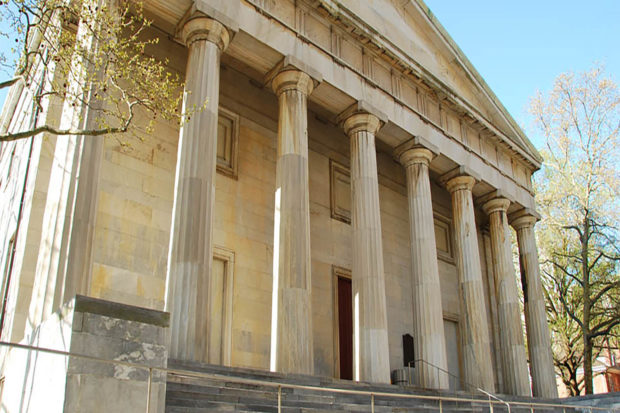|
| A “public bank” may or may not be a good idea, but throwing away City of Richmond taxpayers’ money at a feasibility study that is already fully funded by Oakland and Berkeley shows the lack of fiscal restraint that is increasingly associated with the Richmond Progressive Alliance and its members who now control the Richmond City Council.
The idea of a “public bank” was originally hatched in Oakland as a convenience to the burgeoning cannabis industry that lacks access to conventional banks due to constraints of federal law. Although the public bank concept is being sold as a way to get out from under wall street, make lending more accessible to local and small businesses and allow cities to profit from lending, all of these could be available by simply chartering a credit union, a member-owned financial cooperative, democratically controlled by its members, and operated for the purpose of promoting thrift, providing credit at competitive rates, and providing other financial services to its members (https://en.wikipedia.org/wiki/Credit_union ).
Advocates for the Public Bank of Oakland list an additional motivation, “Solve the problem of millions of dollars in cash that the cannabis industry cannot legally deposit in private banks.” (https://friendsofpublicbankofoakland.org/).
Cannabis is legal in California, and cities, including Richmond, profiting from the cannabis industry is not new. Many cities, including Richmond, tax cannabis sales (Richmond at 5%), and Richmond is negotiating to lease the General Warehouse in historic Shipyard 3 to a business that intends to use the entire 160,000 square feet for cannabis processing and manufacturing. What is curious, however, is that when the public bank concept was presented at City Council on October 3, neither the public speakers nor the City Council members supporting it mentioned the prime motivation was to provide financial services for the cannabis industry – until I brought it up.
I have real reservations about the City of Richmond getting into the banking business. The City of Richmond does not have a good track record of running any business, and those it has tried are not doing well. All you have to do is look at the Port of Richmond and the Richmond Housing Authority. A “public bank” organized by cities to serve the cannabis industry would not have access to deposit insurance from the Federal Deposit Insurance Corporation (FDIC), and depositors would look to the cities as the “insurers.”
This is just another bad idea brought to you by the Richmond Progressive Alliance.
Tom Butt

Richmond considers contributing to an Oakland-based public bank study

The city of Oakland is considering opening a public bank in order to divest from Wall Street. Richmond might contribute to the study. (Photo courtesy of National Park Service, licensed via Creative Commons)
By Padmini ParthasarathyPosted October 3, 2017 5:04 pm
Tonight, Richmond city council members will discuss whether to chip in money to fund a study about opening a public bank in Oakland. That city has already gathered $100,000: $75,000 from its own coffers and an additional $25,000 from Berkeley. But Richmond is still considering adding to the pot, the first of many steps in establishing the Bay Area’s first public bank.
Susan Harman, a longtime public-banking advocate, said a major reason to participate is that a private bank’s “motive is profit and a public bank’s motive is the public good.” She argued that a local public bank wouldn’t be beholden to shareholders, and could save the city of Oakland a fair amount of money.
In 2016, the city of Oakland paid $56 million in interest to Wall Street, she said. Harman said that this money could be funneled back into the city and used for public projects, such as infrastructure, schools, and local businesses instead.
Public banking became a topic of conversation again after the 2008 financial crisis. Some proponents argue that a public bank would allow California cities to increase revenues by collecting tax revenue from marijuana sales more easily. But this might make the bank more vulnerable, as it would not be in compliance with federal regulations.
Critics also say that it will be difficult to establish good-governance practices for public banks. They claim that it would be nearly impossible to protect the bank from partisan and private interests, as well as corruption.
In recent years, public banking has come into vogue in California. Former Oakland mayoral candidate Dan Siegel included the formation of a public bank in his platform. Former Richmond city council member and candidate for lieutenant governor Gayle McLaughlin wants a statewide public bank, too. Many cities around the country are assessing the possibility of forming public banks as well.
“San Francisco, L.A., Santa Fe, Philadelphia, Boston, Minneapolis, Seattle—all are at some stage of doing this,” Harman said.

|

